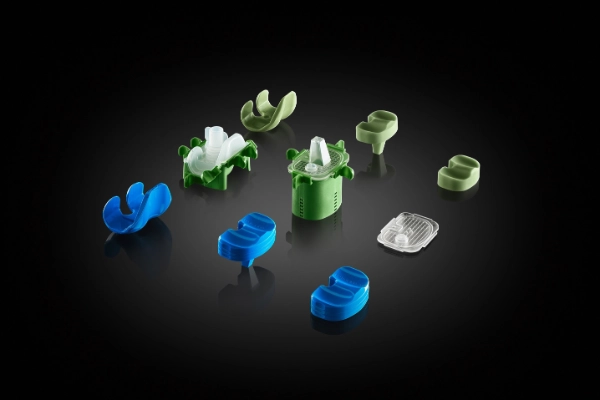COPAL® knee moulds – Moulds for the Preparation of Cement Spacers

moulds for preparation of temporary bone cement knee spacers
limited patient mobility during 2-stage revision surgeries
articulation: tibial and femoral component together create an articulating bearing surface
high customization: 36 options based on 3 sizes (S, M, L), 6 tibia heights with optional stem
trials for intraoperative size determination of spacer prepared with COPAL® knee moulds
Your Advantages
Customizable: Patient Focus
- COPAL® knee moulds provide customization to individual patient situation
- Modularity allows for 36 reconstruction options
- Articulation of COPAL® knee moulds provide limited patient mobility during spacer interims.1
Reliable: Heraeus Quality
- Reproducible spacer design and quality based on rigid material preventing deformation under heat or pressure
- Safety in handling: spacer construction without a scalpel
- COPAL® knee moulds is fillable with PALACOS® R+G bone cements
- PALACOS® R+G with increased antibiotic elution2 and superior mechanical strength3
Anatomical: Implant-Like Spacer Design
- COPAL® knee moulds design is based on actual knee prostheses
- Modular tibial spacer design allows for improved fit and joint space preservation
Handling Video
Indications
COPAL® knee moulds are designed to prepare spacers by filling the moulds with bone cement. COPAL® knee moulds are disposable cement spacer moulds indicated for use to mold a temporary total knee replacement (TKR) for skeletally mature patients undergoing a two-stage procedure due to a septic process. The molded temporary knee spacer is indicated for an implantation period of 180 days or less. Because of inherent mechanical limitations of the device material (PALACOS® R+G bone cement), the molded temporary spacer is only indicated for patients who will consistently use traditional mobility assist devices (e.g. crutches, walkers) throughout the implant period.